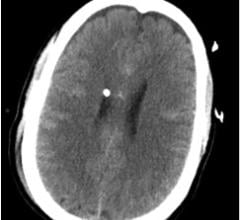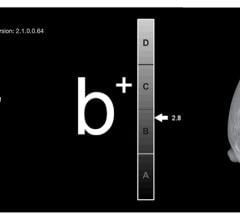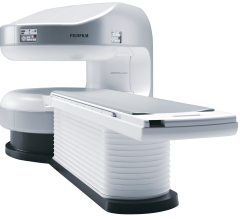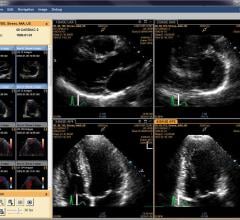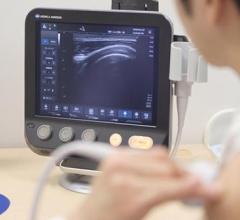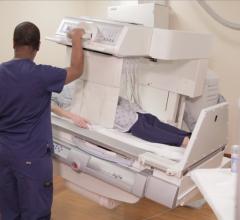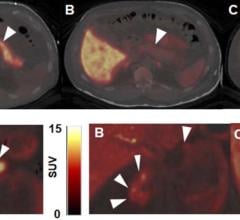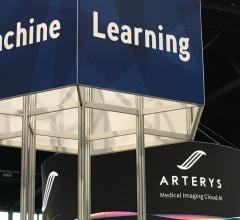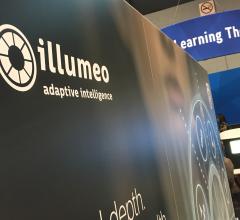Patients at The London Clinic, a private hospital and charity, will be the first in the United Kingdom to access the latest Siemens magnetic resonance imaging (MRI) technology in September. A high-rise crane carefully lowered the multi-million pound 3.0T MRI scanner through the hospital’s roof on July 14.
Aidoc announced that it was granted U.S. Food and Drug Administration (FDA) clearance for the first product of its expanding suite of artificial intelligence (AI)-based workflow optimization solutions. The clearance is for Aidoc’s brain solution that works with radiologists to flag acute intracranial hemorrhage (ICH) cases in head computed tomography (CT) scans. Aidoc calls it the world's first deep learning solution to assist radiologists in workflow triage.
iCAD announced U.S. Food and Drug Administration (FDA) clearance of its latest artificial intelligence (AI) software solution, PowerLook Density Assessment Version 3.4. The software is compatible with iCAD’s digital breast tomosynthesis (DBT) platform on both GE and Hologic mammography systems, enhancing the company’s comprehensive suite of breast health solutions available in a single platform.
Fujifilm’s APERTO Lucent is a 0.4T mid-field, open MRI system addressing today’s capability and image quality needs ...
Johns Hopkins researchers say a heart imaging study of scores of pregnant women with the most severe and dangerous form preeclampsia further proves the condition mainly damages the heart’s ability to relax between contractions, making the organ overworked and poor at pumping blood.
Metro Health-University of Michigan Health announced it is partnering with healthcare data company Eon to improve the management of lung cancer screening and pulmonary incidental nodule patients with EonDirect. EonDirect is the first cloud-based software powered by deep learning and machine automation to seamlessly interface with hospitals' electronic medical records (EMR) and picture archiving and communication systems (PACS) to deliver meaningful, actionable data to healthcare providers.

SPONSORED CONTENT — Fujifilm’s latest CT technology brings exceptional image quality to a compact and user- and patient ...
August 7, 2018 — While heart failure is an uncommon complication of breast cancer treatment, the risk is higher in ...
SPONSORED CONTENT — Fujifilm’s latest CT technology brings exceptional image quality to a compact and user- and patient ...
Konica Minolta Healthcare Americas Inc. announces UGPro Solution, a new initiative that provides complete solutions for ultrasound-guided procedures (UGP) and therapies. By acquiring complimentary products and developing distribution agreements, Konica Minolta Healthcare is expanding its product and service portfolio vertically in the MSK specialty. The company is taking a novel and comprehensive approach by providing solutions that unite advanced ultrasound technology, such as the Sonimage HS1 and Sonimage MX1, with the latest minimally-invasive procedural technologies in regenerative medicine and robust, skills-based education to provide musculoskeletal (MSK) clinicians with a better way to provide care.
The world market for machine learning in medical imaging is set for a period of robust growth and is forecast to top $2 billion by 2023, according to a new report from Signify Research. The artificial intelligence (AI) market comprises software for automated detection, quantification, decision support and diagnosis according to Signify Research, an independent supplier of market intelligence and consultancy to the global healthcare technology industry.
Imalogix, a provider of artificial intelligence (AI) process and workflow solutions, announced the availability of the latest evolution to its platform for diagnostic imaging, interventional radiology, cardiology and surgery.
SPONSORED CONTENT — EnsightTM 2.0 is the newest version of Enlitic’s data standardization software framework. Ensight is ...
The Board of Directors of the Radiological Society of North America (RSNA) announced that Gary D. Luker, M.D., will become editor of the new online journal, Radiology: Imaging Cancer. The journal will launch in 2019.
Lawrence Tanenbaum, M.D., FACR, vice president and director of advanced imaging at RadNet, discusses the latest research ...
Sheila Sferrella, president of Regents Health Resources and Bill Finerfrock, president of Capitol Associates, discuss ...
Did you know that approximately one-third of all the data in world is created by the healthcare industry and that ...
Sheila Sferrella, president of Regents Health Resources and Bill Finerfrock, president of Capitol Associates, discuss ...
Sheila Sferrella, president of Regents Health Resources and Bill Finerfrock, president of Capitol Associates, discuss ...
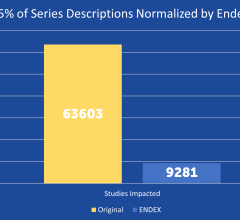
SPONSORED CONTENT — EnsightTM 2.0 is the newest version of Enlitic’s data standardization software framework. Ensight is ...
David C. Westgate was recently named the new chairman, president and CEO of Carestream Health.
Researchers have discovered a new nuclear medicine test that could improve care of patients with type 1 diabetes. The new positron emission tomography (PET) imaging method could measure beta-cell mass, which would greatly enhance the ability to monitor and guide diabetes therapies. This study is reported in the featured article of the month in The Journal of Nuclear Medicine’s August issue.
Ehsan Samei, Ph.D., DABR, FAAPM, FSPIE, director of the Duke University Clinical Imaging Physics Group and head of the ...
Angelic Bush, CRA, FAHRA, president of the Association for Medical Imaging Management (AHRA), and Bill Algee, AHRA ...
The Radiological Society of North America (RSNA) recently announced that it will offer its members expanded opportunities in machine learning (ML) and artificial intelligence (AI) research and education over the coming months and into the future.
Medical imaging has become the bellwether for the application of artificial intelligence (AI) technologies, especially deep learning techniques in the healthcare space, according to a new report from industry analysts Frost & Sullivan. The report, “Artificial Intelligence for Medical Image Analysis—Companies-to-Action, 2018,” indicates that more than 90 companies are at various stages of development and commercialization of AI-based solutions for the medical imaging industry.


 August 08, 2018
August 08, 2018 
